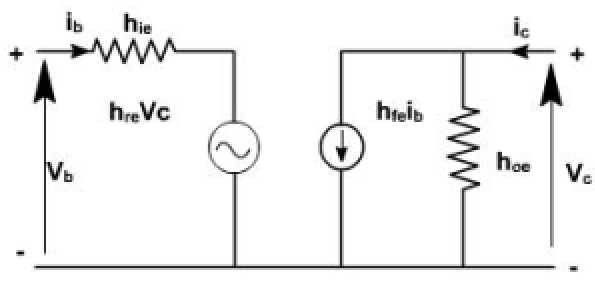Regarding the below liner circuit model, as far as I understand to find the output impedance the input current Ib is set to zero and the output resistance is calculated as Vc/Ic. I think this way of modeling and calculating the output resistance comes from the Thevenin model. So the definition output impedance will be Vc/Ic when input port is open circuit (?).
So if I set Ib to zero, hfr * Ib becomes zero and the only thing left is hoe where Ic = Vc * hoe so can we say that the output impedance is 1/hoe ?
I'm not sure above is correct but in some texts they say the output impedance is infinity theoretically? How can that be estimated? If wrong how is the output impedance is derived following the circuit above?
What is meant by the following? I had to take photo to add the original text:


